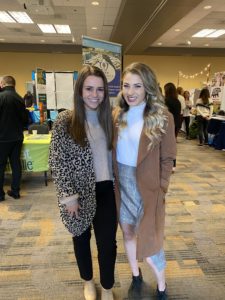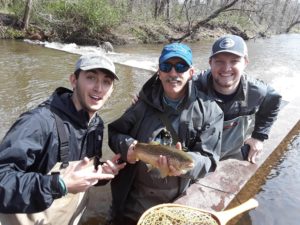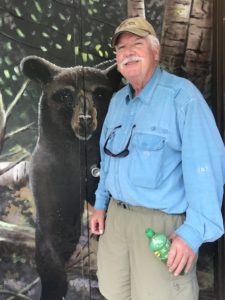Faculty in Clemson’s parks, recreation and tourism management department won three of six national awards presented by The Academy of Leisure Sciences at its annual conference in February. The awards program recognizes those who have demonstrated outstanding performance in teaching, research or service in leisure studies and its related fields.
A department graduate student was also recognized for her potential as a scholar in recreation and leisure studies.
Interim Chair Jeffrey Hallo says that the awards are indicative of the impact the department’s students and scholars are making in the field.
“I’m not surprised to see such outstanding recognition of the value our faculty and students bring to the study and teaching of leisure sciences,” Hallo said. “It’s affirming to see that their colleagues throughout the country feel the same way I do about their work and commitment to their profession.”
The department’s award recipients include:
Excellence in Teaching Award – Lauren Duffy, PhD
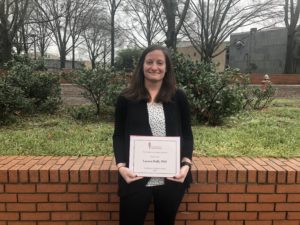
Lauren Duffy, associate professor of travel and tourism, was recognized for consistently demonstrating an outstanding ability as a teacher of leisure sciences. Duffy’s teaching approach actively engages students in course content, creating inclusive learning environments and diversifying the methods she uses to teach. She provides opportunities for her students to work directly with community organizations and governments, ensuring the knowledge they develop is firmly rooted in both a focus on service and a practical understanding of the profession. She feels her most important job is to create critical thinkers who are prepared to engage with complex problem-solving and global issues of the 21st century.
Duffy is also a 2019-20 Clemson University Teaching Forward Fellow and 2018 recipient of the Award for Excellence in Undergraduate Teaching from The Clemson University College of Behavioral, Social and Health Sciences.
New Researcher Award – Ryan Gagnon, PhD
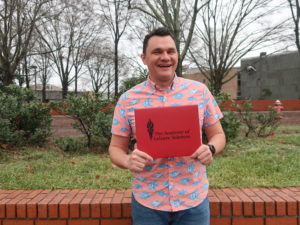
Ryan Gagnon, assistant professor of community recreation, sport and camp management, was recognized for exceptional research contributions since earning his doctorate. The award signifies Gagnon’s potential to become an exceptional member of the Academy as his career progresses.
Gagnon’s research is focused on improving out-of-school programs as contexts for youth thriving and development, exploring how out-of-school settings can best serve youth from poverty contexts and examining the role and influence of overparenting on youth development. Since 2015, Gagnon has published 28 peer reviewed journal articles, two book chapters and 22 conference proceedings, while also completing more than 48 research papers, posters and educational sessions. He’s also part of research grants and contracts totaling close to $1.5 million (including a grant from the National Science Foundation).
Gagnon has also been recognized with a Doctoral Degree Candidate Research Award (2017) from the Clemson University College of Behavioral, Social and Health Sciences, as well as through his department and other external organizations.
Innovation in Teaching Award – PRTM Writing Mentorship Project
Faculty members: Gwynn Powell, PhD and Lauren Duffy, PhD
Inaugural PRTM Writing Mentorship Project Members: E’Lisha Fogle, Paul Gremillion, Karleisha Kakraba, Tori Kleinbort, Lisa Olsen and Lauren Stephens
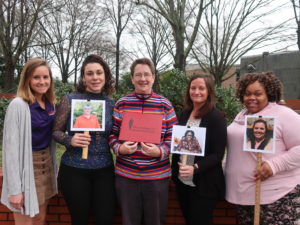
The team, led by Gwynn Powell and Lauren Duffy, was recognized for transforming how their department’s undergraduate, graduate students and faculty address professional written communication. The PRTM Writing Mentorship Project applies a “learning through teaching” approach that gives graduate students the tools and skills they need to effectively coach undergraduate students – improving the writing skills and ability of both groups.
The project brought together professionals, faculty, graduate students and undergraduate students, ensuring an approach informed by professional needs and standards. This work was started through a grant from the Pearce Center for Professional Communication and is now in its third year, with improvements being made every cycle.
Powell is the only member of the Academy to have been recognized with this award three times.
Hannah Wells – TALS Future Scholar
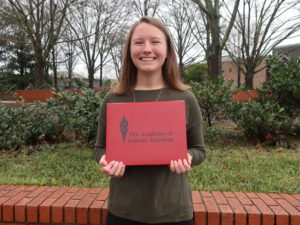
Hannah Wells, a graduate student in the department, attended the conference as part of the Academy’s Future Scholars Program, which gives graduate students interested in pursuing a doctorate in an area related to recreation and leisure sciences an opportunity to connect with scholars in the field by attending the Academy’s annual conference. Wells was paired with an Academy mentor during the conference and received $1,000 from the Academy to cover her transportation, lodging and meal expenses.
Award recipients are chosen based on their academic ability; indications of scholarly potential in the field based on their publications, presentations and research experience; level of professionalism and their intention to pursue a doctoral degree in the future.
Wells was previously recognized in 2019 for her achievements as a student by the parks, recreation and tourism management department at Clemson. She received awards for academic excellence (department-wide), departmental honors (graduate) and academic excellence in recreational therapy.
###
The parks, recreation and tourism management department at Clemson University is one of the largest and most well-recognized programs of its type in the nation. It offers undergraduate and graduate degrees in community recreation, sport and camp management, park and conservation area management, PGA golf management, public administration, recreational therapy, travel and tourism, and youth development leadership.
